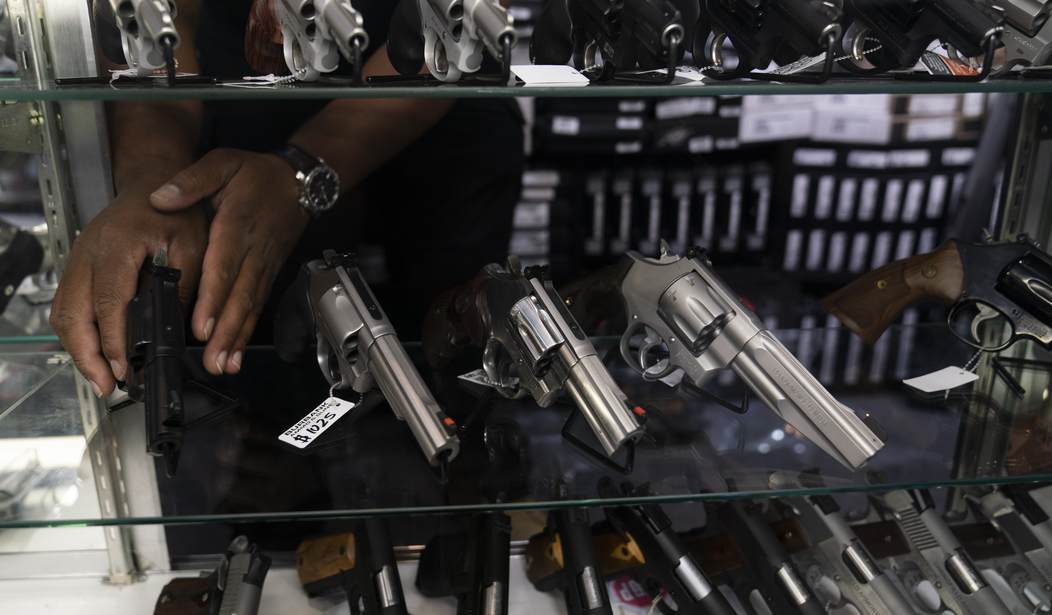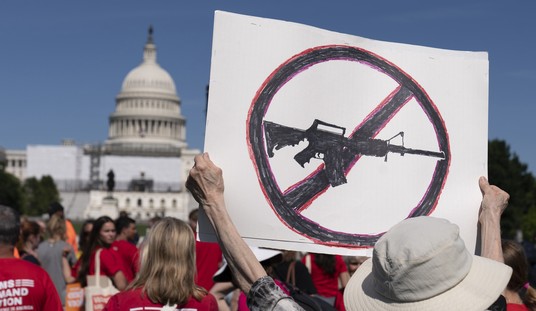Cam and I talk just about every day. We do this so we don't cover the same story, which can and does happen if we don't communicate and coordinate.
In the aftermath of something high-profile in the Second Amendment world, be it a court decision or a high-profile shooting, we often lament the fact that this is what we're going to be talking about for days on end. We actually rejoice when, during this time, we find something not connected to that incident.
Seriously, covering the Route 91 Festival shooting in Las Vegas was mentally and emotionally devastating for me, in part because that's all the news there was at the time.
After Minneapolis, we knew what was coming.
It's all a lot of people seem capable of talking about, and we've talked about it quite a bit. Some people offer inane thoughts that deserve to be mocked. Others offer suggestions they meant to be taken seriously, and they need to be debunked.
And then we get this guy.
This op-ed was written by a professor of political science at LaGrange College, which happened to be my father's alma mater. He seems to want to discuss red flag laws and makes some points that most don't make, then loses the plot.
This would allow people who want a gun to purchase one. Florida is second in the country in gun sales, with an ERPO. California, which has an ERPO, is third. Virginia with its ERPO has higher gun sales than Alabama and Georgia, which do not. Michigan, with a red flag law, has higher gun sales than Arizona, which does not. Indiana, with its ERPO, has higher gun sales than South Carolina, which does not have a red flag law (gun sales data comes from safehome.org). In my city of LaGrange, Georgia, Remington Arms employs 850 people and has an investment of $100 million, and I don’t want to see that go.
Gun deaths will still occur if we implement a national red flag law. But it seems we would have fewer of them should such laws remove firearms from those judged by the judicial system to be a threat to themselves and others. It may be a start for reducing gun violence in the USA and limiting such school shootings.
Now, the problem is that the author, John Tures, looked at some very basic data--gun mortality rates from the CDC--and compared them to the states with red flag laws, drawing the conclusion that with more states with low gun death rates also having red flag laws, while those with high gun death rates largely lack them, then red flag laws seem to work.
However, for an academic, that's a rather elementary mistake.
Correlation doesn't necessarily equal causation. One would also need to account for numerous other variables, such as race, education, economics, and a host of other things, before one remotely tries to make that case with any veracity. Tures did none of that, simply looking at the surface-level view and apparently assuming he need not look any deeper.
That's clearly not a good idea.
Moreover, the argument that you can still buy a gun is ridiculous. Yes, you can still buy a gun...unless someone decides that you're a threat for any idiotic reason, then gets a red flag order against you. Then, you're precluded from obtaining a gun, even if you've never owned one before.
Plus, he ignores the due process concerns inherent in red flag laws. They essentially require you to prove your innocence, and do so after you've been stripped of your rights. In many states, literally anyone can seek a red flag order against someone, and while they theoretically face perjury charges if they lie about why they think one is needed, almost no one is ever prosecuted for it. Plus, in this day and age, when many of us have been called dangerous simply because we own guns, we're not really thrilled about our crazy sister-in-law deciding we should be disarmed.
Then there's the failure to look beyond gun deaths and whatnot and acknowledge that red flag laws supposedly disarm people who are a threat, but still leave these supposedly dangerous people running around. Considering that there are way too many ways to hurt people that don't involve a firearm, that doesn't seem particularly wise if someone is really that much of a threat.
It's not like every state doesn't have some law that takes these people off the streets for a 72-hour period, where they can be evaluated or anything.
I'm not surprised that a college professor is taking a stand that involves more government control. However, it's also clear that the man may make a living educating others, but he's the one who needs education.
Editor’s Note: The radical left will stop at nothing to enact their radical gun control agenda and strip us of our Second Amendment rights.
Help us continue to report on and expose the Democrats’ gun control policies and schemes. Join Bearing Arms VIP and use promo code FIGHT to get 60% off your VIP membership.








Join the conversation as a VIP Member